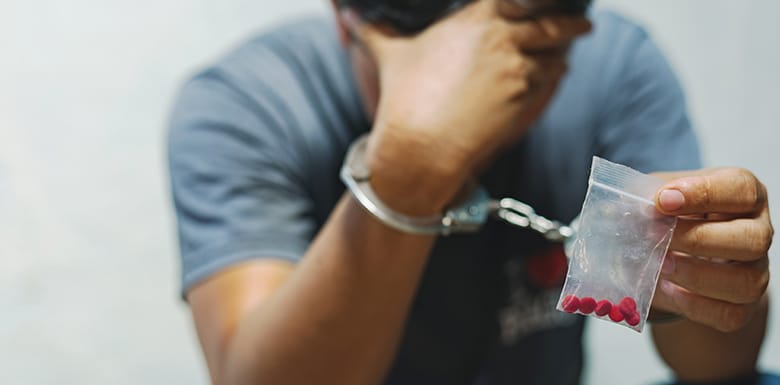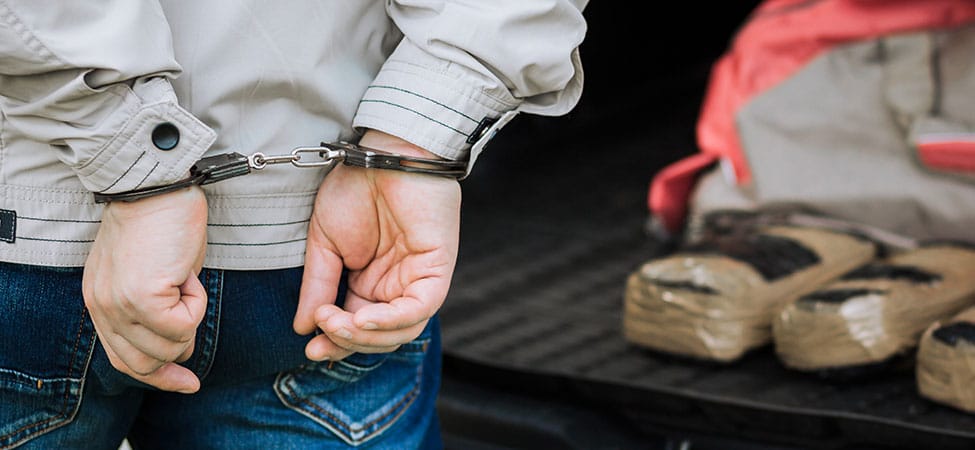The U.S. Controlled Substances Act breaks downregulated drugs into five schedules based on their potential for addiction and abuse. Drugs that fall into these classifications are known as controlled substances and if you are caught possessing, distributing, selling or manufacturing them, you can be prosecuted under both federal and Pennsylvania laws.
Schedule I drugs are the most dangerous and Schedule V drugs are the least. If your drug arrest involves Schedule I or Schedule II drugs, you have an increased chance of being charged with a felony offense in Pennsylvania. If you are found guilty, you can be sentenced based on Pennsylvania’s mandatory minimum sentencing laws that apply to all scheduled drugs.
If you or a loved one has been charged with a Schedule I or II drug offense, don’t wait to speak with a skilled Pittsburgh drug defense attorney. The sooner we get involved, the sooner we can begin protecting your rights and building your defense.
Call Worgul, Sarna & Ness, Criminal Defense Attorneys, LLC today at (412) 281-2146 for a free consultation.

Jump to a Section
- What are Schedule 1 Drugs?
- What are Schedule 2 Drugs?
- What are the Penalties for Possession of Schedule 1 & 2 Drugs?
- Proving Possession of a Controlled Substance
- Selling or Intending to sell
- What Pennsylvania law states
- Steps to take if you have been charged with possession
- Contact Us
What Are Schedule I Drugs?
Schedule I drugs are classified as the most likely to cause potentially severe physical or psychological dependence. They have the highest potential to be abused and no legitimate medical use in the U.S. Schedule 1 drugs include:
What Are Schedule II Drugs?
Schedule II drugs also have a high potential for abuse, although less than Schedule I drugs, and they can cause physical or psychological dependence. Schedule II drugs do have medical use in the U.S. and are available by prescription. Schedule II drugs include:

What are the Penalties for Possession of Schedule I & II Drugs in Pennsylvania?
For the first offense of possession of an illegal substance, you can face up to a year in jail and/or a fine up to $5,000.
With any Schedule I or II-related conviction, your driver’s license will be suspended for six months for a first offense, one year for a second offense, and two years for a third offense.
You will likely also see an effect on other areas of your life if you’re convicted of a drug crime, like difficulty getting a job, trouble maintaining your current job, loss of custodial rights if you have children and more.
Proving Possession of a Controlled Substance
In Pennsylvania, you have possession of a controlled substance when you own or possess it. If the controlled substance is available by prescription, and you are caught with the drug but without a valid prescription for it, you can be charged. For you to be convicted of possessing a controlled substance, prosecutors must prove:
- You knowingly and intentionally had control of an illegal drug.
- You knew the drugs were illegal, you knew the drugs were present, and you intended to use or control them.
- You either had actual or constructive possession of a controlled substance. In other words, you had the drug on your person, such as in your pocket, or in a spot that you had control over, like the trunk of your car or hidden under your bed.
Selling or Intending to Sell a Schedule I or II Drug
If you are caught with a controlled substance in your possession, the courts in Pennsylvania can punish you harshly. But if you are arrested for selling, or intending to sell, those same drugs, the penalties you face will be even more severe.
The penalties for selling Schedule I or II drugs are the harshest of any classification of controlled substances.
If you are charged with selling or intending to sell a Schedule I or II drug you risk being sentenced to as many as 15 years in prison and a fine of up to $250,000.
In Pennsylvania, the judge will use the specific circumstances of your case as part of the equation when he or she determines your sentence. You can receive heavier penalties based on factors such as drug amount, weapons involvement, prior convictions and whether you were arrested near a school.
What Pennsylvania Law Says About Drugs
Pennsylvania covers laws pertaining to drugs under the Pennsylvania Code, Title 35. Under the Controlled Substance, Drug, Device and Cosmetic Act, it is prohibited to knowingly or intentionally possess drugs (or fake drugs) unless you have a prescription. It is also prohibited to manufacture, deliver, or possess with the intent to deliver drugs unless you are licensed to do so. A violation of the former is a misdemeanor while a violation of the latter is a felony. Mandatory minimum sentencing does apply.
Steps To Take If You Have Been Charged with Possession of a Controlled Substance
If you have been charged with a drug offense, your first step should be to immediately hire a lawyer.
An experienced drug attorney will have worked with the prosecutors handling your case many times before. They can draw on their relationships and understanding of the local court system to lessen or dismiss your charges.
Don’t talk to the police or prosecutors unless your attorney is with you.
Your lawyer will go over what happened both before and after your arrest. Importantly, he or she will assess whether there was probable cause to charge you with a crime. This includes determining if the drugs really belonged to you.
If you were arrested for a drug crime while you were in your car, a critical aspect of your case will be whether or not the police had probable cause to pull you over and do a search. If there was not probable cause, the evidence obtained by law enforcement can be suppressed.
Contact Our Pittsburgh Drug Possession Lawyers Near You Today
Your rights are at stake and you need the best defense to keep them. I will fight using the strongest defense available to get your Schedule I & II Drugs charge reduced or dismissed so you can move on with your life.
If you have been arrested for possession of a Schedule I or II drug, contact Worgul, Sarna & Ness Criminal Defense Attorneys near you at (412) 281-2146 or use our contact form.








